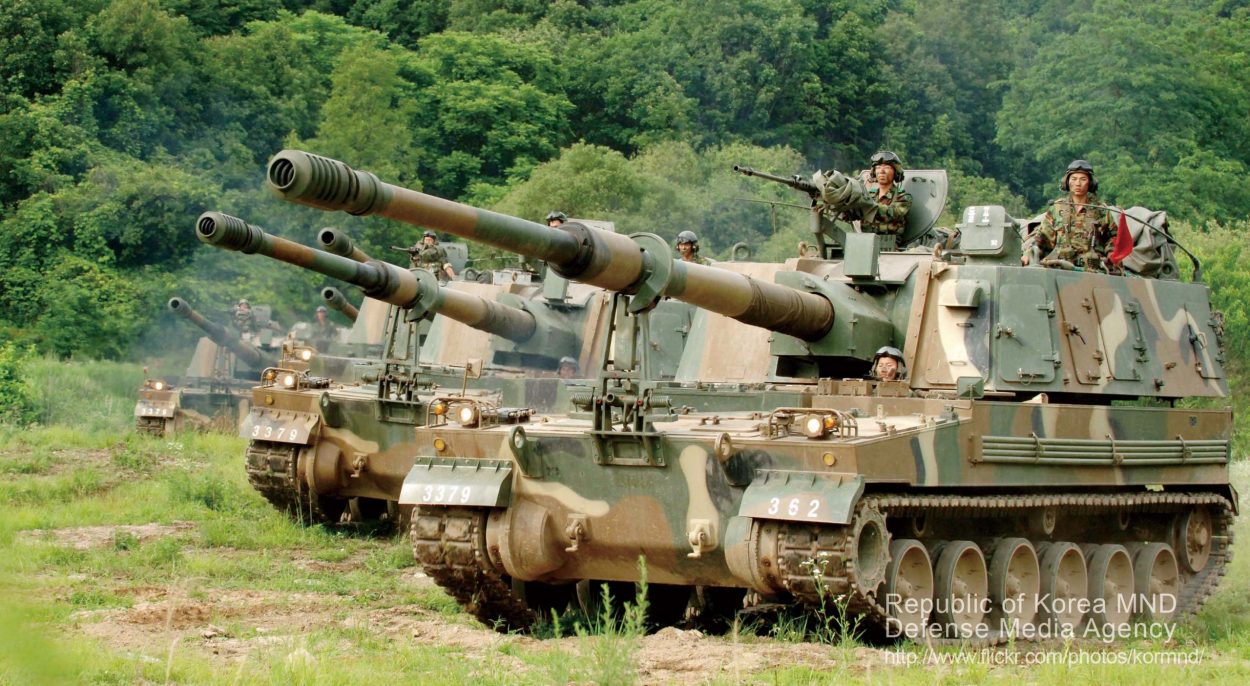Amid massive global demand for ammunition, the Indian Army is reducing its dependence on ammo imports. With geopolitical tensions intensifying in regions like Europe, the Middle East, and the Indo-Pacific, the Indian move is intriguing but aimed at self-reliance.
Ammunition shortages in conflict zones like Russia and Ukraine highlight the vulnerabilities of relying on imports during times of crisis.
Ukraine’s military openly admitted experiencing shortages of ammunition as the U.S. and NATO could not meet the humongous Ukrainian demand to replenish the country’s military supplies.
This scarcity played a role in Ukraine’s withdrawal from the town of Avdiivka, highlighting the potentially catastrophic effects of ammunition shortages in the conflict-ridden country. Consequently, Russia escalated attacks as Ukraine grappled with a dire shortage of ammo.
Conversely, Russia was manufacturing around 250,000 artillery munitions monthly within the same timeframe, totaling approximately three million annually, according to NATO intelligence estimates.
Nevertheless, despite this production capability, Russia encountered challenges in meeting its domestic ammunition production needs for the ongoing conflict in Ukraine.
A lack of ammunition in a war situation can severely impact military operations, as recently seen in the Ukraine war. Without ample ammunition, troops face challenges defending positions, launching offensives, or maintaining pressure on enemy forces, leading to battlefield setbacks and hindering strategic goals. Additionally, the shortage can profoundly affect military morale.
And relying on ammunition imports during conflicts is not a reliable option.
Rationale Behind Indian Army’s Decision
Recognizing the critical importance of self-sufficiency, the Indian army aims to eliminate ammunition imports by the next financial year. This strategic move enhances India’s defense capabilities and strengthens its position in the global market.
The Indian army currently procures ammunition worth Rs. 6000-8000 crores ($800M to $1B) annually. Despite a global demand exceeding $30B, Indian sources currently contribute less than 1%.
Maj Gen VK Sharma, ADG (Procurement) of the Indian Army, mentioned at a seminar on Ammunition Production organized by the PHD Chamber that India could increase its contribution to 5-10% within the next 4-5 years and possibly to 25-30% in the future.
Private Sector Involvement For Self-Sufficiency
Until a few years ago, the army heavily relied on imports to fulfill its annual ammunition requirements. However, it has now identified indigenous sources for nearly 150 out of the 175 types of ammunition it utilizes, with the aim of completely eliminating imports by 2025-26.
Previously, only the state-owned Ordnance Factory Board (OFB) was authorized to manufacture ammunition.
In 2016, India’s private sector was granted permission to produce certain components of ammunition, such as shells or fuses. Presently, alongside former OFB entities like Munitions India Ltd (MIL) and Yantra India Ltd (YIL), private companies like Adani, Kalyani Group, and Solar Industries play significant roles in ammunition production in India.
These prominent private sector players are poised to manufacture ammunition not only for the Indian army but also for global markets.

Prominent Players To Manufacture Ammo
Adani Defence & Aerospace: Adani Defence & Aerospace inaugurated two massive facilities in the UP defense corridor at Kanpur in February 2024, dedicated to manufacturing various caliber ammunition and missiles.
Spanning 500 acres, the Kanpur facility is positioned to be one of South Asia’s largest integrated ammunition manufacturing complexes. It has commenced production of 150 million rounds of small caliber ammunition, equivalent to approximately 25% of India’s annual requirement, as reported by the company.
Economic Explosives Ltd: It is a wholly-owned subsidiary of Solar Industries India Ltd. headquartered in Nagpur, Maharashtra, entered into a contract worth Rs 212 crore with the Ministry of Defence last year for the supply of loitering munitions.
Bharat Forge: A key entity within the $3 billion Kalyani Group, received authorization from the Ministry of Home Affairs in July 2023 to manufacture small arms and ammunition.
This approval positions the company to potentially participate in defense programs. Bharat Forge’s product range includes ammunition ranging from 40mm to 155mm, shells from 100mm to 155mm (empty only), kinetic ammunition FSAPDS, mortar bodies, warheads, bomb bodies, and loitering ammunition.
Saarloha Advanced Materials Private Limited: Saarloha Advanced Materials Private Limited, another subsidiary of the Kalyani Group based in Pune, Maharashtra, is a prominent producer of a diverse range of specialty steels for critical applications. Last year, it submitted a bid to supply ammunition to the Indian army in collaboration with Arsenal J.S. Co of Bulgaria as its original equipment manufacturer (OEM) partner.
AAN Engineering Industries Limited: AAN Engineering, headquartered in Gurgaon, is a wholly-owned subsidiary of Rico Auto Industries Limited. The company specializes in manufacturing structural metal products, tanks, reservoirs, and steam generators. Last year, AAN Engineering partnered with SFTE SpetstechnoExport of Ukraine to participate in a bid to supply ammunition to the Indian Army.
Premier Explosives Ltd.: Premier Explosives, headquartered in Secunderabad, specializes in manufacturing explosives and detonators using indigenous technology. The company has obtained industrial licenses from the Department of Industrial Policy and Promotion (DIPP) for producing rockets, missiles, bombs, and mines for defense and ammunition.
Additionally, it operates a manufacturing facility in Katepally, Telangana, where it produces solid propellants, HMX/RDS, ammunition, mines, warheads, bombs, and more.
India’s strategic shift towards self-sufficiency in ammunition production through private sector involvement marks a significant step in bolstering national security and economic resilience. This bold initiative not only secures India’s defense but also positions Indian companies as major players in the global arms industry.
- Penned By: Shubhangi Palve
- Contact the author at shubhapalve (at) gmail (dot) com




